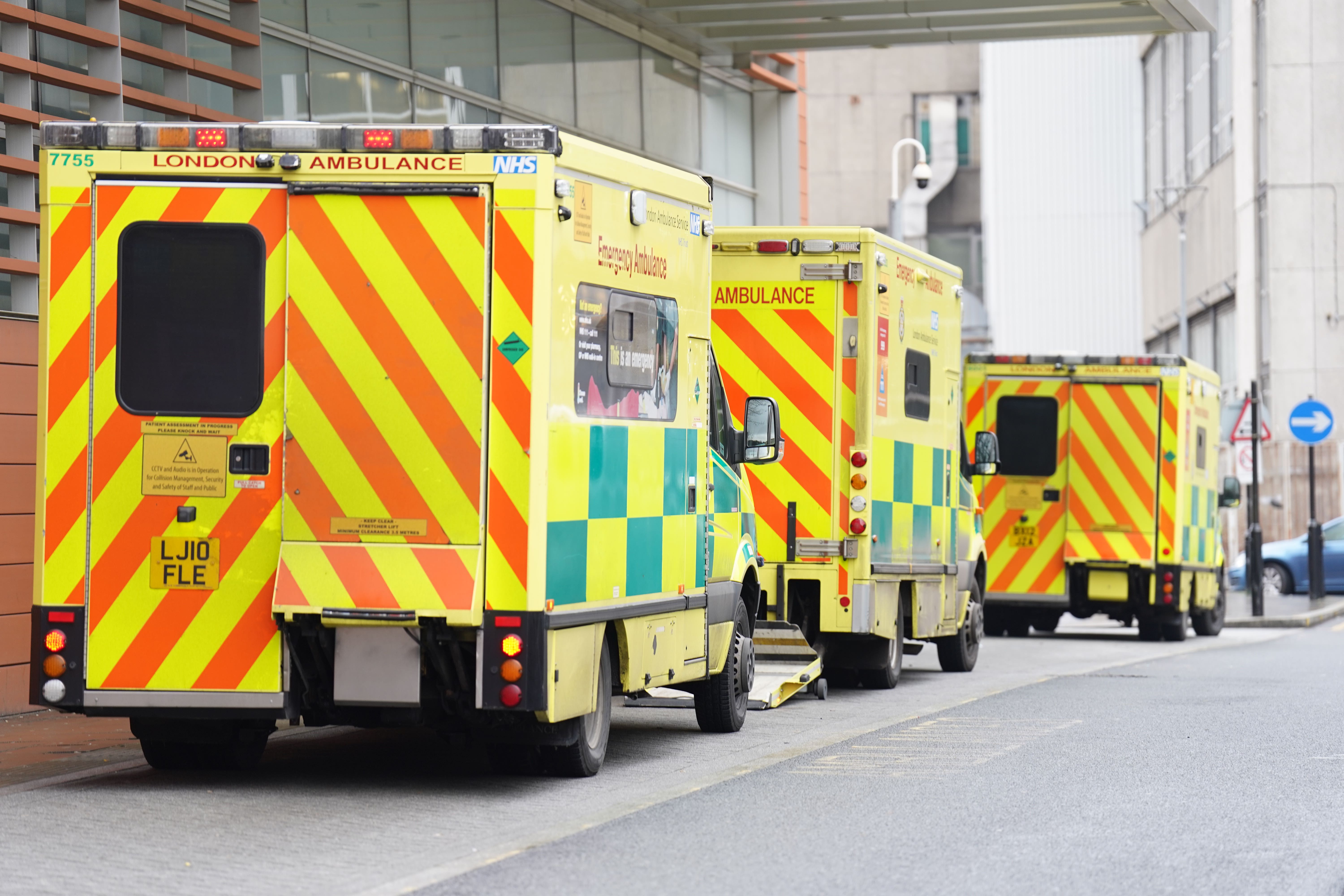Ambulance handover delays remain high with one in five waiting over an hour
Some 37% of handovers last week were delayed by at least 30 minutes.

Your support helps us to tell the story
From reproductive rights to climate change to Big Tech, The Independent is on the ground when the story is developing. Whether it's investigating the financials of Elon Musk's pro-Trump PAC or producing our latest documentary, 'The A Word', which shines a light on the American women fighting for reproductive rights, we know how important it is to parse out the facts from the messaging.
At such a critical moment in US history, we need reporters on the ground. Your donation allows us to keep sending journalists to speak to both sides of the story.
The Independent is trusted by Americans across the entire political spectrum. And unlike many other quality news outlets, we choose not to lock Americans out of our reporting and analysis with paywalls. We believe quality journalism should be available to everyone, paid for by those who can afford it.
Your support makes all the difference.One in five ambulance patients in England waited more than an hour to be handed to A&E teams last week as hospitals continue to struggle with bed shortages and a surge in winter viruses.
The figure is down from nearly one in four the previous week, partly due to industrial action by ambulance workers on December 21.
On the day of the strike, the proportion of patients waiting over an hour was 14%, or around one in seven, compared with an average across the week of 20%.
But this is still well above the 4% for the equivalent week last year and 3% in 2020.
Ambulance services reported receiving fewer calls than normal during the strike, with some advising the public to dial 999 only if there was a risk to life or if somebody was seriously ill or injured.
A total of 37% of handovers last week were delayed by at least 30 minutes, down from 41% the previous week but much higher than the 13% recorded at this point in 2021 and 11% in 2020.
NHS trusts have a target of 95% of all ambulance handovers to be completed within 30 minutes, with 100% within 60 minutes.
NHS England said hospital capacity “continues to be impacted by delayed discharges”, with 12,313 beds a day taken up by patients who were ready to leave.
“Staff pulled out all the stops to ensure as many patients as possible were able to spend Christmas with loved ones at home,” a spokesperson said, adding that the figure for delayed discharges was the lowest since August.
Hospitals are also facing pressure from a sharp rise in winter viruses, with an average of 3,746 flu patients in beds each day last week, up 79% from 2,088 the previous week.
At this point last December there were only 34 people in hospital with flu.
The number of hospital patients in England testing positive for Covid-19 was 9,459 on December 28, up 9% on the previous week and the highest total since October 24.
An average of 182 Covid-19 patients were in mechanical ventilation beds across the most recent seven days, the highest since the week to November 4.
Analysis of the latest data by the PA news agency shows that, among those trusts reporting at least 500 ambulance arrivals last week, the highest proportion of patients waiting more than an hour to be handed over was 54% at University Hospitals Bristol & Weston (360 out of 666 patients).
This was followed by Gloucestershire Hospitals at 53% (317 of 602 patients), University Hospitals of North Midlands at 50% (307 of 619), Mid & South Essex at 46% (406 of 887), North Bristol at 44% (237 of 538) and Shrewsbury & Telford also at 44% (224 of 512).
Royal Cornwall Hospitals had 496 arrivals by ambulance last week, of which 261 (53%) waited over an hour to be handed to A&E.
A handover delay does not always mean a patient has waited in the ambulance.
They may have been moved temporarily into part of an A&E building until staff were available to complete the handover.